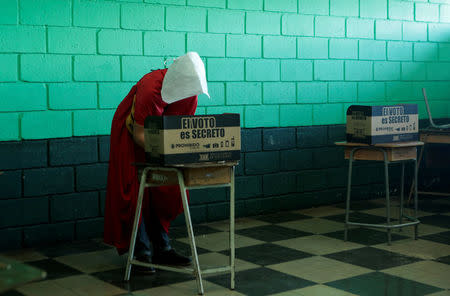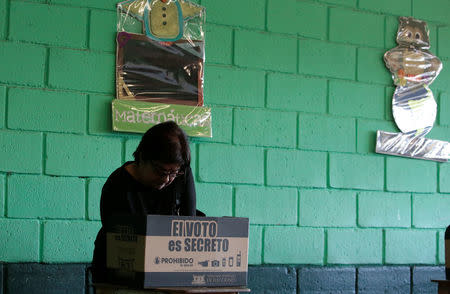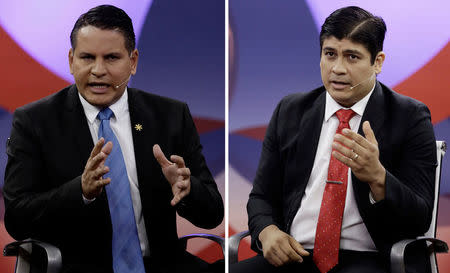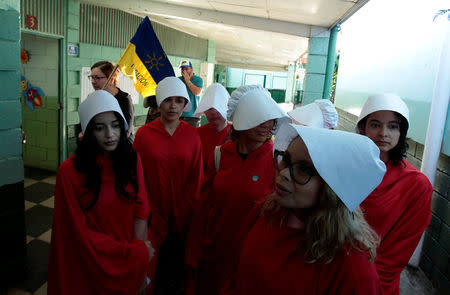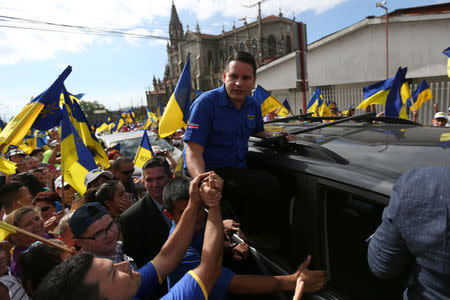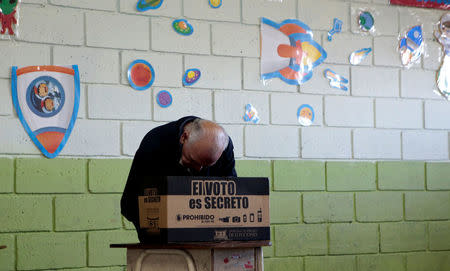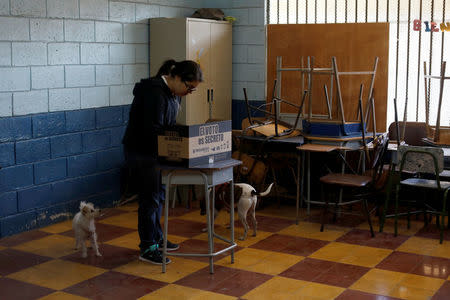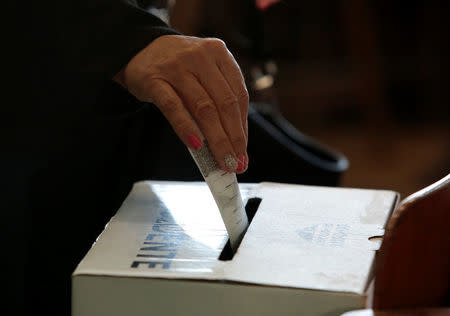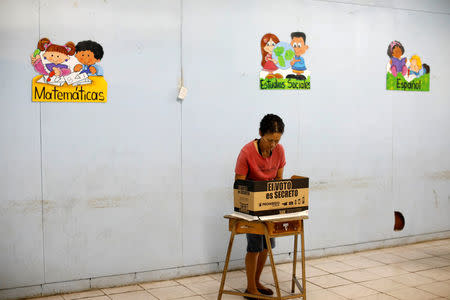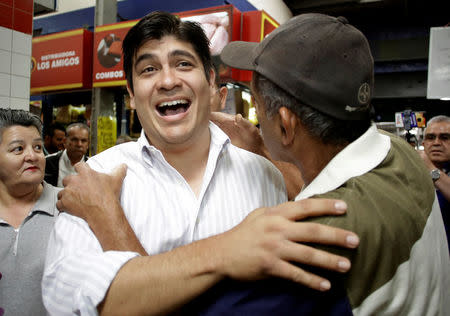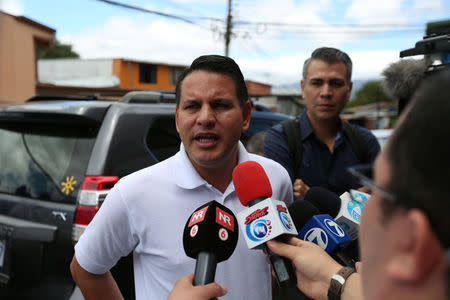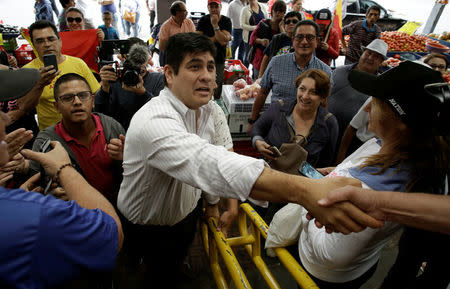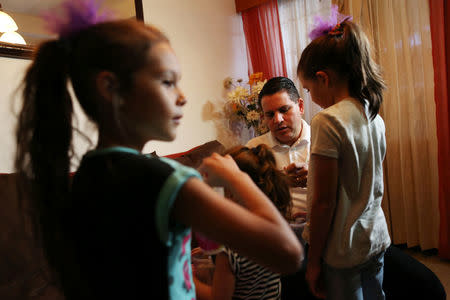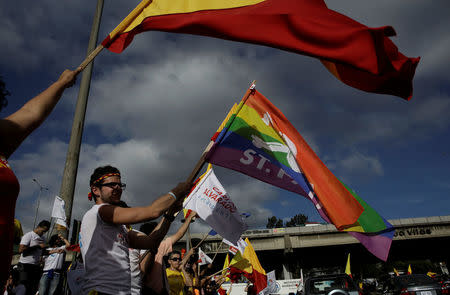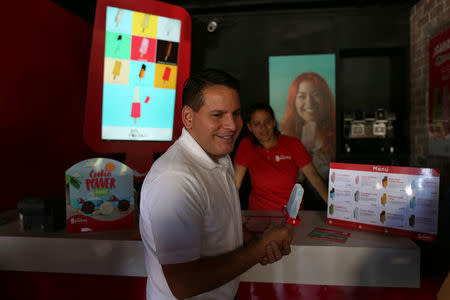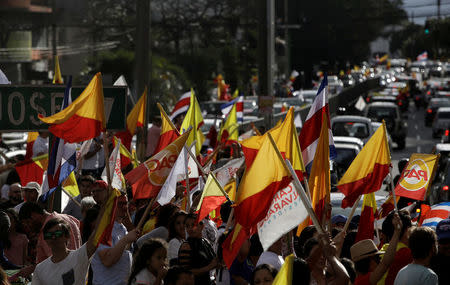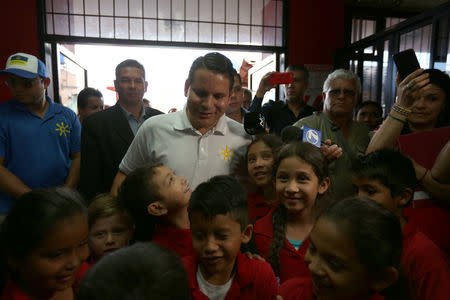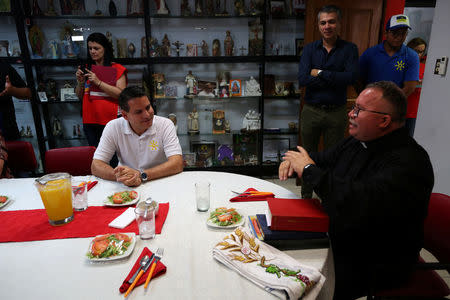A divided Costa Rica votes in runoff fought over gay rights
By David Alire Garcia SAN JOSE (Reuters) - Voters in Costa Rica were deciding in an Easter Sunday runoff whether to elect conservative Christian singer Fabricio Alvarado Munoz their next president, a result that could mark a sharp turn from the current government's embrace of gay rights. Best known for religious dance songs and ballads, the 43-year-old former TV journalist faces the center-left ruling party candidate, Carlos Alvarado Quesada, 38, in a tight race that was roiled by a court ruling ordering the country to allow same-sex marriage. Shortly after Alvarado Munoz cast his vote at a school in the capital, San Jose, the Pentecostal singer pledged to lead a government free of bias. "We're going to work for everyone and we won't discriminate against anyone. We will protect all groups that have felt vulnerable ... people with disabilities, people with different sexual orientations," he told reporters. At another polling place across town in the western Pavas barrio, Alvarado Quesada, a minister until recently in the outgoing government, voted and spoke briefly to a crowd of supporters. "Costa Rica is an amazing country and we want to not only preserve its great democracy, its peaceful nature, its respect for the environment and human rights, but we also want to move Costa Rica forward," he said. All across the city, cars filled with flag-waving supporters from both sides of the contest honked their horns and shouted slogans. Polls are open until 6 p.m. (0000 GMT), and vote totals were expected later in the evening. The two Alvarados, who are not related, took opposing positions on a January decision by the Inter-American Court of Human Rights, an influential regional body based in San Jose. Fabricio, as supporters call Alvarado Munoz, called it an affront to traditional values and sovereignty in the Central American nation. Threatening to remove the country from the court's jurisdiction, he shot from the margins to the top of a 13-candidate field, and won the first round of voting in February. Alvarado Quesada backed the court's ruling. In the campaign's final debate, he called his opponent's comments homophobic. DEEP DIVISIONS Since 2017, the government of President Luis Guillermo Solis has grown increasingly unpopular, weighed down by a corruption scandal. The election exposed deep divisions in the global tourist destination known for its laid-back beach culture and rainforest stewardship, but whose rural communities remain socially conservative. In 2014, Solis ordered the gay pride flag raised alongside the Costa Rican colors atop his offices to mark the International Day Against Homophobia and Transphobia, the first time any head of state had done so in the Americas. The symbolic act generated headlines across the globe. On the campaign trail, Alvarado Munoz lamented the international attention the flag-raising brought, saying he would have favored "more positive news, like Costa Rica beating Mexico 3-0" at soccer. The fight over same-sex marriage has overshadowed other issues in the race, like a widening budget deficit that has triggered four credit downgrades over the past five years. Former President Laura Chinchilla urged the country on Sunday to accept the result whichever way it goes. "I hope the Costa Rican family will be able to unite behind whoever wins," she said. The election fell on Easter by chance, and while some voters thought that could help Alvarado Munoz, others suggested turnout appeared to be down as many Costa Ricans spent the holiday at the beach. Sonia Ramirez, 59-year-old government administrator, said after voting that she believed the government must consult the public over weighty issues like same-sex marriage and faulted the outgoing government for not doing so. Asked which candidate she favored, she smiled and said: "I voted for Alvarado." (Reporting by David Alire Garcia; Additional reporting by Enrique Andres Pretel; Editing by Frank Jack Daniel and Peter Cooney)
